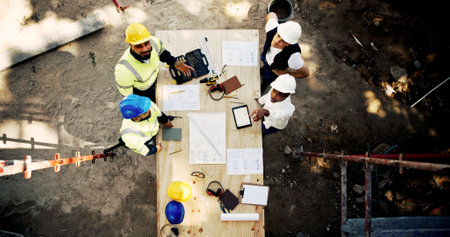Overview of Green Building and Sustainable Infrastructure in India
India is witnessing a significant transformation in the construction and infrastructure sectors, driven by the rapid adoption of green building practices and sustainable development models. As urbanisation accelerates across metros and tier-2 cities, the need for eco-friendly buildings and sustainable infrastructure has never been more critical. The Indian government, recognising this shift, has introduced several key policies and rating systems such as the Indian Green Building Council (IGBC) and GRIHA (Green Rating for Integrated Habitat Assessment). These frameworks are not just regulatory but also create new benchmarks for energy efficiency, water conservation, waste management, and overall environmental responsibility within the industry. Sustainability is now at the core of urban development strategies in India, aligning with global trends and responding to local challenges like resource scarcity, pollution, and climate change. With these evolving standards and a growing demand for skilled professionals in green technologies, the sector offers dynamic career opportunities for those ready to innovate and contribute to India’s sustainable future.
2. Career Paths in Green Building: Roles and Required Skills
India’s rapid urbanisation and the government’s focus on sustainable development have created a dynamic ecosystem for professionals in green building and sustainable infrastructure. Let’s break down the most popular career tracks, along with the essential technical and soft skills required to excel in this sector.
Popular Career Tracks in India’s Green Building Sector
| Career Track | Key Responsibilities | Relevant Skills |
|---|---|---|
| Green Architect | Designing eco-friendly buildings, incorporating energy-efficient solutions, selecting sustainable materials, and complying with Indian green certifications (like IGBC, GRIHA). | AutoCAD, Revit, knowledge of local bylaws, creativity, stakeholder management |
| Sustainability Consultant | Advising clients on green building standards, conducting site assessments, preparing sustainability reports, and helping achieve LEED or IGBC certification. | Data analysis, project management, report writing, presentation skills, regulatory knowledge |
| Energy Auditor | Conducting energy audits for commercial/residential projects, recommending solutions to improve efficiency as per Indian norms (BEE), and supporting implementation. | Technical auditing tools, analytical thinking, problem-solving, communication skills |
| Facilities Manager (Green Buildings) | Managing daily operations of green-certified properties, ensuring maintenance aligns with sustainability goals, and tracking performance metrics. | Facilities management systems (CAFM), team leadership, vendor negotiation, adaptability |
Technical Skills in Demand
- Familiarity with Indian building codes (NBC 2016), IGBC/GRIHA/LEED rating systems
- Proficiency in energy modeling software (e.g., eQUEST, DesignBuilder)
- Sustainable material selection and lifecycle analysis
- Project management using tools like MS Project or Primavera P6
- Knowledge of renewable energy systems relevant to Indian climate zones
Soft Skills Essential for Success in India’s Green Sector
- Cultural sensitivity to regional practices across India’s diverse states
- Effective communication in English and local languages (Hindi/Tamil/Telugu/etc.) for stakeholder coordination
- Negotiation and persuasion skills when working with contractors or government agencies
- Adaptability to evolving technologies and policy updates from Indian authorities like MoEFCC and MNRE
- Problem-solving mindset to address unique challenges faced in Indian urban/rural contexts
Navigating Your Career Path in India’s Sustainable Infrastructure Market
The green building industry in India offers abundant opportunities for professionals who combine domain expertise with an understanding of local regulations and market needs. By developing both technical know-how and people skills rooted in India’s unique context, you can carve out a rewarding career contributing to a greener Bharat.

3. Essential Certifications and Educational Pathways
To build a successful career in green building and sustainable infrastructure in India, having the right educational background and certifications is crucial. Many employers look for candidates with degrees in civil engineering, architecture, environmental science, or urban planning. However, practical knowledge of sustainability concepts and green construction practices is equally important.
Relevant Academic Backgrounds
Indian universities and technical institutes are increasingly offering specialised courses and electives focused on sustainable development, environmental engineering, and renewable energy systems. Pursuing a B.Tech or M.Tech in Environmental Engineering, Urban Planning, or Construction Management can provide a solid foundation for this field. Additionally, attending workshops and seminars organised by institutions like TERI (The Energy and Resources Institute) can add significant value to your profile.
Key Indian and Global Certifications
Obtaining recognised certifications not only boosts your credibility but also keeps you updated with industry standards. The IGBC Accredited Professional (IGBC AP) certification, offered by the Indian Green Building Council, is highly respected within India’s green building sector. Globally recognised credentials such as LEED Accredited Professional (LEED AP), administered by the US Green Building Council, open doors to international projects as well.
Sustainability-Oriented Courses
Short-term certifications in energy management, water conservation, waste management, and green construction technologies—offered by reputed institutions like the National Institute of Construction Management and Research (NICMAR) or through online platforms like Coursera and edX—can make your profile stand out. These courses are especially useful for working professionals seeking to upskill or transition into the sustainability sector.
Cultural Context: Industry Recognition in India
In India’s competitive job market, employers often prioritise candidates who combine technical expertise with recognised credentials. Networking with IGBC chapters in cities like Bengaluru, Mumbai, or Hyderabad can also help you tap into local opportunities. Remember that continuous learning and staying aligned with both national guidelines (such as ECBC) and global standards will set you apart in this rapidly growing industry.
4. Opportunities in Indian Corporate and Public Sector Initiatives
As India accelerates its commitment to sustainable growth, the landscape for green building and sustainable infrastructure careers is evolving rapidly. Both the corporate sector and public sector units (PSUs) are actively investing in climate-resilient solutions, providing a wide spectrum of opportunities for professionals with expertise in sustainability, engineering, and project management.
Corporate Sector: Leading the Green Transformation
Large Indian corporations, especially in sectors like IT, manufacturing, and real estate, are integrating green building practices into their business strategies. Sustainability managers, energy auditors, LEED/GRIHA consultants, and ESG (Environmental, Social, and Governance) reporting specialists are highly sought after. Companies such as Tata Group, Infosys, Godrej Properties, and Mahindra Lifespaces have dedicated teams focused on implementing green initiatives across their projects. Professionals who understand both global standards and local compliance requirements stand out in recruitment drives.
Infrastructure Projects: Expanding Horizons
Major infrastructure projects—metro rail networks, airports, highways, and industrial corridors—are increasingly being designed with sustainability at their core. Project managers with experience in sustainable procurement, waste management experts, water conservation specialists, and renewable energy engineers are in high demand. The government’s push for low-carbon construction materials and smart urban planning is creating new roles within large EPC (Engineering, Procurement & Construction) firms as well as consultancy organizations.
Government Initiatives: Smart Cities and PSUs
The Indian government’s Smart Cities Mission has opened up a wealth of career prospects. Urban planners, GIS analysts, IoT integration experts for smart grids/water management systems, and policy advisors are essential for these projects. Additionally, PSUs like NTPC Limited, NBCC (India) Limited, and BHEL are expanding their sustainability divisions to meet national targets on clean energy and environmental impact reduction.
Startups: Driving Climate Innovation
The startup ecosystem in India is thriving with innovations in climate-resilient infrastructure—from green construction materials to AI-driven energy efficiency solutions. Roles such as product development leads for green tech solutions, climate finance analysts, and sustainability communication specialists are emerging rapidly. Startups offer dynamic career paths with steep learning curves for professionals eager to make a tangible impact.
Key Job Roles Across Sectors
| Sector | Popular Job Roles |
|---|---|
| Large Corporates | Sustainability Manager, ESG Analyst, Green Building Consultant |
| Infrastructure Projects | Project Manager (Sustainable Infra), Waste Management Expert |
| Government/PSUs | Urban Planner (Smart Cities), Policy Advisor (Climate) |
| Startups | Product Lead (Green Tech), Climate Finance Analyst |
In Summary
The convergence of government policy support and private sector investment is creating robust job opportunities for professionals passionate about sustainable infrastructure in India. Whether you seek structured career progression in corporates or the agility of startups, this is the right time to build your expertise in green building domains aligned with India’s vision of a climate-resilient future.
5. Emerging Trends and Future Prospects
India’s green building and sustainable infrastructure sector is rapidly evolving, driven by government initiatives, global climate commitments, and a dynamic urban population. As the nation gears up for a greener future, several emerging trends are shaping new career opportunities for professionals in this field.
Net-Zero Buildings: The Next Big Leap
The concept of net-zero energy buildings is gaining strong momentum in India, especially in metros like Bengaluru, Hyderabad, and Delhi NCR. These buildings are designed to produce as much energy as they consume through advanced technologies such as solar panels, efficient HVAC systems, and intelligent building management systems. With the push from schemes like GRIHA and IGBC certification, demand for architects, engineers, and consultants skilled in net-zero design is set to soar.
Green Retrofitting: Revamping the Old with the New
Retrofitting existing structures to meet green standards is becoming a mainstream trend. Real estate developers and facility managers are investing heavily in upgrading older commercial complexes, IT parks, and residential societies to improve energy efficiency and indoor air quality. This shift has opened up specialized roles for sustainability consultants, retrofit project managers, MEP engineers, and energy auditors who understand the Indian construction context.
Renewable Energy Integration: Powering Tomorrow’s Infrastructure
India’s ambitious renewable energy targets—such as 500 GW non-fossil fuel capacity by 2030—are leading to widespread adoption of solar rooftops, wind power, and innovative hybrid systems across both urban and rural projects. As infrastructure projects integrate renewable sources at scale, there is growing need for professionals adept at solar engineering, grid integration, battery storage solutions, and regulatory compliance.
Future Demand for Skilled Professionals
The intersection of these trends means that employers are seeking talent with multidisciplinary expertise—combining technical know-how with practical project experience and an understanding of India-specific regulations. Whether it’s green finance specialists supporting ESG investments or smart city planners driving digital transformation in sustainability projects, the market is hungry for professionals who can bridge global best practices with local realities.
Key Takeaway
If you’re considering a career in this sector, keeping pace with these trends and upskilling through certifications (like LEED or IGBC), hands-on internships, or specialized training will position you strongly for exciting roles that contribute directly to India’s sustainable growth story.
6. Networking, Industry Events, and Practical Experience
Building Your Professional Network in India’s Green Sector
In the fast-evolving landscape of green building and sustainable infrastructure in India, networking is not just an added advantage—it is a necessity. Actively connecting with professional bodies such as the Indian Green Building Council (IGBC), Confederation of Indian Industry (CII), and GRIHA can open doors to valuable industry insights, mentorship, and job leads. Join their membership programs, attend chapter meetings, and participate in online forums to stay updated on current trends and opportunities. These platforms are particularly effective for freshers and mid-career professionals looking to transition into sustainability roles.
Participating in Key Industry Events
India hosts several premier industry events that focus on green construction and sustainable infrastructure. One standout example is the Green Building Congress, which attracts leading experts, policymakers, and organizations from across the nation. Attending such conferences gives you direct access to thought leaders, potential employers, and collaborators. Make it a point to prepare your elevator pitch, carry updated CVs or business cards, and engage actively in panel discussions or workshops. Other notable events include Smart Cities Expo India and Renewable Energy India Expo—both excellent venues for building connections specific to urban infrastructure and renewable energy projects.
Gaining Hands-on Experience: Internships & Field Projects
Theoretical knowledge alone won’t set you apart in this competitive sector. Employers in India increasingly value hands-on experience—be it through internships, live projects, or volunteering on field assignments. Seek out internship opportunities with established green consultancies like TERI, Mahindra Lifespaces, or Tata Projects. Even short-term assignments can provide you with practical exposure to sustainable design principles, project management tools like BIM (Building Information Modelling), or the implementation of IGBC/GRIHA norms on actual sites. Fieldwork also helps you understand unique challenges faced in diverse Indian geographies—from monsoon-proofing buildings to working with local materials.
Actionable Tips for Young Professionals
- Connect with alumni networks from your college who are now active in the sustainability domain.
- Join LinkedIn groups dedicated to green jobs in India; regularly share or comment on relevant content.
- Volunteer for NGOs or CSR initiatives focused on sustainable development—these often lead to full-time positions.
Remember:
Your network is your net worth in the green building sector. Take every opportunity to connect, learn, and gain hands-on skills—the combination will accelerate your career growth in India’s booming sustainable infrastructure industry.

